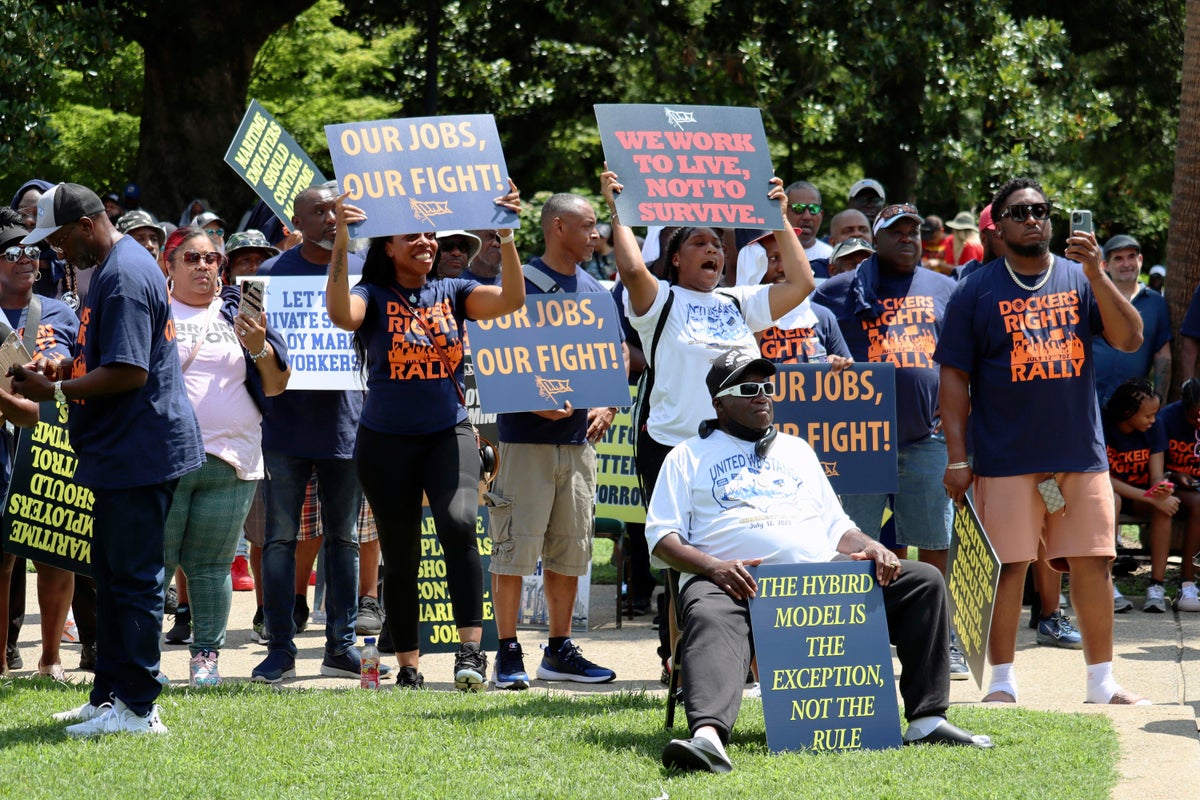
Dockworkers and the governor in the state with the lowest percentage of unionized workers are digging in their heels over a labor dispute that has left the newest container terminal at the East Coast's deepest harbor largely inactive.
Pending before a federal appeals court is a National Labor Relations Board decision that upheld unionized dockworkers' right to exclusively staff the cranes at Hugh K. Leatherman Terminal in Charleston, South Carolina, under a 2012 master contract.
The alternative is a so-called hybrid model implemented by other South Carolina terminals backed by Republican Gov. Henry McMaster where loading operations would be fulfilled by employees from both the state and the International Longshoremen’s Association Local 1422.
But union organizers find much more at stake than the availability of higher-paying jobs and the resumed operations of the project's recently completed $1 billion first phase. They fear a reversal could set the stage for other right-to-work states to overturn national labor contracts they don't like.
The ILA Local 1422 brought the fight to the South Carolina State House on Wednesday with a rally attended by over 300 workers, allies and labor leaders from around the country.
“Injury to one is an injury to all. It’s Charleston today. It could be Savannah tomorrow,” said Timothy Mackey, the president of the local union representing Georgia dockworkers at one of the only three ports alongside those in South Carolina and Wilmington, North Carolina, that have hybrid workforces.
Supporters said allowing union workers to power the cranes at Leatherman would align practices in South Carolina with much of the United States. ILA International Vice President Ken Riley said the governor and South Carolina State Ports Authority are disrespecting a contract that encompasses the entire nation.
“To say that you guys — a predominantly African-American workforce — will never get in those cranes, will never get into those machines, like it’s done all up and down the country," Riley told The Associated Press. "Why doesn’t South Carolina get the message?”
The South Carolina State Ports Authority has argued that a solely unionized workforce would burden the terminal by increasing operational costs. Their wages are governed by the master contract, unlike those set for state employees.
McMaster told reporters on Wednesday that a union victory would send a bad message to businesses interested in setting up shop in South Carolina. If the NLRB ruling is affirmed, McMaster said he supports appealing the case to the U.S. Supreme Court.
“We do not need any more union participation in South Carolina," McMaster said. "The last thing that a booming economy needs is to throw a monkey wrench into a system that we have that is working marvelously well.”
Standing outside the Wednesday rally, Democratic state Rep. Gilda Cobb-Hunter said a union loss would roll back wages won by the state's strongest Black union. She credited the labor force for creating an African American middle class in a state where port operations support 1 in 10 jobs.
Meanwhile, shipping container lines have refused to use the terminal amid the disagreement in a development that has left the site largely idle since it opened two years ago. Not present are the large cargo ships that South Carolina sought to court by deepening Charleston Harbor and doubling port capacity by the terminal's completion next decade.
Cobb-Hunter blamed the inactivity on the state for not following the contract agreement.
“It’s like we’re pouring money down a black hole," Cobb-Hunter told the AP as attendees held signs reading “Leatherman is empty. The question is why?”







